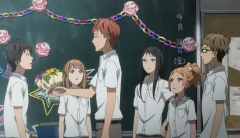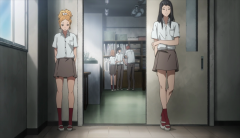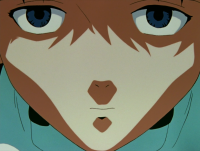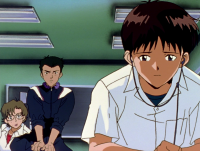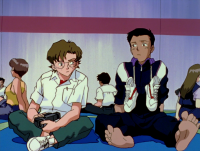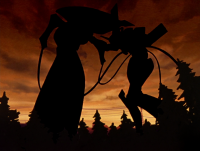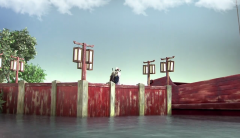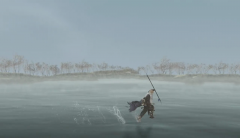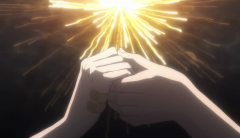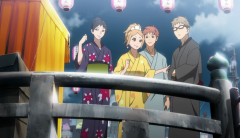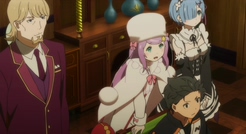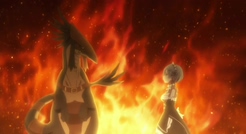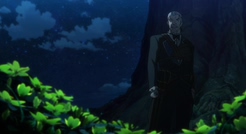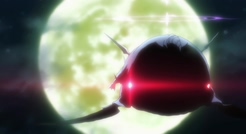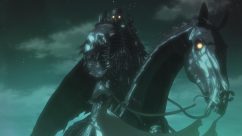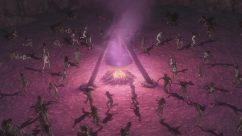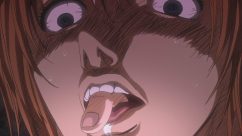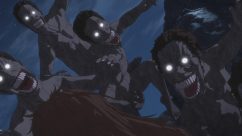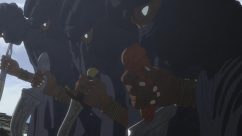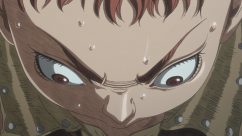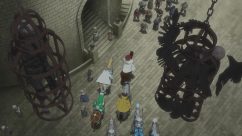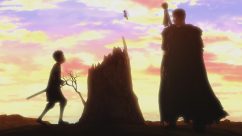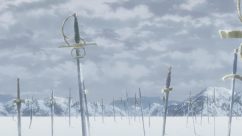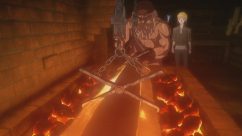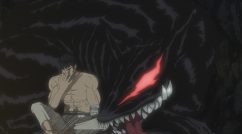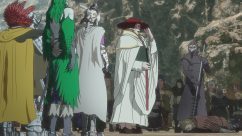This episode is a winner. It hits all the right notes on what make orange so appealing. Upon knowing that Kakeru will attempt his first suicide after talking to his Tokyo friends over the weekend, Suwa and Naho confront him and tell him not to go. Kakeru is an insecure kid, he’s deeply troubled by the death of his mom, blames himself for what happened and is unable to talk about his problems to his friends. But as Suwa points out correctly, close friends are supposed to share pain together, and his mistake was not his fault. I once had a real friend who told me that she had thought about attempt suicide and it was nasty. The real ugliness of it is once you had it, the thought of suicide never leaves you away and there’s always an urge that push you to do it whenever you feel depressing. Kakeru can only get better if he can be able to talk about it and let his regrets all out. The last sequence is a very nice moment, and I tip my hat off to the direction of that sequence. When Suwa confronts Kakeru, there’s no music cue between those exchanges and it’s the silence that makes us feel the tension and weight behind each conversations. Talking about these things is never easy but at least all three can be able to speak out what they really want.
Suwa steps up to become a big bro for the group. I mentioned last week that I had my concern about feeling cheated if all Suwa did was just followed what were written in the letters. Well, he did follow the letters but thank god the show never sells him short. The thing is that Suwa is not a selfless kid who pull back his feeling to see Naho and Kakeru happy. He did it for the sake of them, yes, but he also did it for his sake as well. It’s a hard role for him but he can pull it off because he’s the most mature and most emotionally honest of the group. There’s still unclear if the rest of the cast also receives the letters like Suwa and Naho did, but they fulfill their supporting roles very well this week. Scenes when they asking Kakeru what he wants for his birthday, or when they stand up to protect Naho from Ueda (Ueda sadly remains the only sore thumb in this episode) are all genuine that showcase their great care towards the leads. And I love the way the two girls stand behind the door, overhearing the sincere conversations from the leads. That small moment speaks more than thousand words, and suddenly they become much more layered in that single moment than they were for the last 6 episodes. Yes, those friends might not be the ones who could change things significantly, but they will always be there whenever you need them.
You might have notice that in previous posts I didn’t discuss much about the romance between Naho and Kakeru, mostly because I found it the most ordinary aspect of orange. Although they share great chemistry together, there’s no denying that “boy gets girl” part is the most cliché part of them all. But even so, this week’s moments between them are goddamn effective. The reason why Naho and Kakeru in the original timeline couldn’t get together was because they were unable to express their feeling to each other. Kakeru always hides his feeling deep down, and Naho is too nervous to say what she really thinks. In this timeline, however, with the help of Suwa and all these friends, Kakeru has a chance to confess to her and she replies him back. Call me cheesy but I found the flowers scenes are heartfelt. They were used twice but each sequence conveys different feeling. When the adult Naho receives the flowers from Suwa, it feels deeply poignant, but when the young Naho accepts the flowers from Kakeru and his confession to her, it feels sweet and genuine. On other notes, there are many nice visual motifs in this episode: the flowers, butterfly (butterfly effect?) and the fluid-est scene transition that fit to the opening credit (go see it!). Based only from this episode, things are about to get better after Kakeru confesses his deepest regrets, but I’m not sold. The theme and the tone of orange always firmly head towards the melodrama territory, so things going to be sad. I’m for once keen to see how they pull this off but at least this episode is a solid example of what orange can do best.

